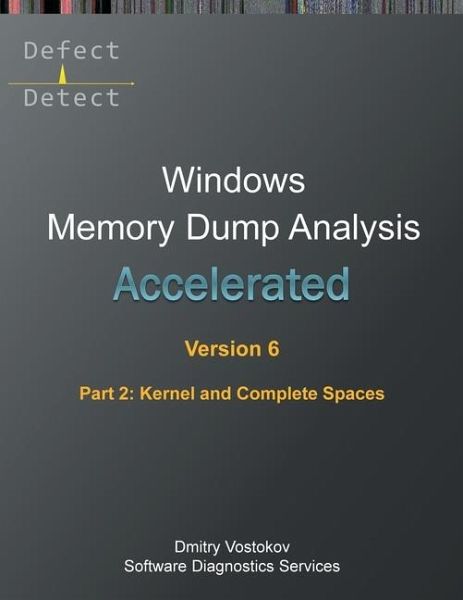
Accelerated Windows Memory Dump Analysis, Sixth Edition, Part 2, Kernel and Complete Spaces
Training Course Transcript and WinDbg Practice Exercises with Notes
Versandkostenfrei!
Versandfertig in über 4 Wochen
88,99 €
inkl. MwSt.

PAYBACK Punkte
44 °P sammeln!
The full-color transcript of Software Diagnostics Services training sessions with 14 step-by-step exercises, notes, source code of specially created modeling applications, and 45 questions and answers. Covers more than 35 crash dump analysis patterns from x64 kernel and complete (physical) memory dumps. Learn how to analyze system crashes and freezes, navigate through the kernel and complete spaces, and diagnose patterns of abnormal software behavior with WinDbg debugger. The training uses a unique and innovative pattern-oriented analysis approach developed by the Software Diagnostics Institut...
The full-color transcript of Software Diagnostics Services training sessions with 14 step-by-step exercises, notes, source code of specially created modeling applications, and 45 questions and answers. Covers more than 35 crash dump analysis patterns from x64 kernel and complete (physical) memory dumps. Learn how to analyze system crashes and freezes, navigate through the kernel and complete spaces, and diagnose patterns of abnormal software behavior with WinDbg debugger. The training uses a unique and innovative pattern-oriented analysis approach developed by the Software Diagnostics Institute to speed up the learning curve. Prerequisites: Basic Windows troubleshooting. Audience: Software technical support and escalation engineers, system administrators, security researchers, reverse engineers, malware and memory forensics analysts, software developers and quality assurance engineers, and site reliability engineers. The 6th edition was fully reworked for the latest WinDbg version and includes additional relevant x64 assembly language review and BSOD analysis pattern strategy outline.


